What to Feed a Shiba Inu
On occasion, our posts contain affiliate links. However, we only recommend products that we truly believe in. For more information, visit my privacy policy page .
Best Dog Food For Shiba Inus
What's the best type of food to feed your Shiba Inu?
Kibble? Canned? Raw, Homecooked? What brand? Where? How?
During the past decade, much needed light has shown brightly on the dark side of the commercial dog food industry. (toxins, "rendered, mystery meat", by-products, supplements from China, preservatives, etc….)
This prompted the dog food industry to go into "damage control overdrive".
We're now inundated with flowery ads for "natural", "healthy", "real beef / chicken" , " made with the finest ingredients" – you get the gist.
Where at one point having Hersh Pendell, a former AAFCO president fess up to the fact that their kibble can contain euthanized pets to suddenly being so "wholesome" and "natural" proves how distorted / misleading the commercial kibble industry actually is.
It's understandable that finding the right type of food would be daunting to pet owner.
Are You Feeding Your Shiba Inu The Best You Can?
If it's universally accepted that humans should eat the freshest, least processed whole foods to lead a healthy life – why shouldn't that apply to our pets?
Looking back at the evolutionary history of canines, do you see preserved, dry kibble being in their diet for any extended amount of time in their history?
Of course not.
Commercial, dry kibble was created in the not-to-distant past simply due to the shortage of metal tins due to the war.
When businesses learned that they could use left over by-products from their main human product line – and still bring in hefty profits – the commercial dry dog food industry was born.
dangers of commercial kibble
Which Method Really is The Best Method?
We will explore the three most common methods of dog feeding and the pro's and con's of each method.
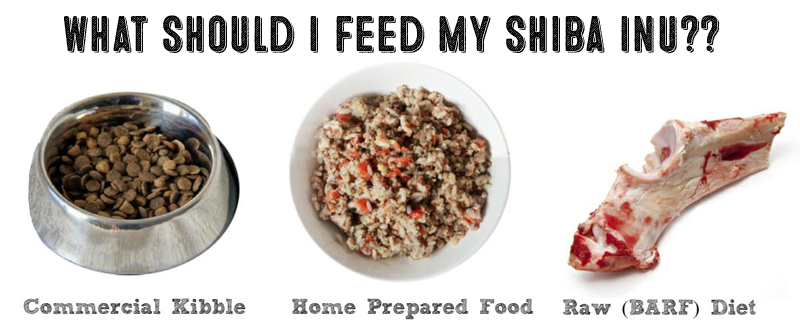
- Commercial Kibble
- Home Prepared Food
- Raw "Barf" Diet
Shiba Inu's are an ancient Japanese dog breed that inhabited areas in Japan that were mountainous and landlocked.
Theoretically, their diets would have consisted of wild fowl, fish, small game, rice, and veggies.
Shibas are a healthy and hardy breed and will do well on a variety of balanced diets.
Additionally, much research has been done on the health benefits of consuming fermented foods. Japanese Shiba owners are often seen indulging their Shibas in Natto – fermented beans with an oh so pungent aroma.
But we as Shiba Inu owners want to give our special dogs the 'best" food possible to keep our Shiba Inu's happy, healthy, and vibrant.
Home Prepared Food – How I Feed My Own Shiba Inu
My personal choice after years of research on this topic is to feed my Shiba Inu an all natural home prepared, balanced diet.
Logically, this is by far the most nutritious and healthful way to feed your pet so long as you ensure that you're providing a balanced meal with all the necessary vitamins and minerals.
Fresh vegetables, protein, fruits, and carbohydrates contain much more biologically available vitamins and minerals than extremely processed kibble.
More importantly, they don't contain:
- Preservatives
- Chemicals
- Low Grade "Rendered" Protein
- Grain "Leftover" Ingredients
- Toxins
- Low Quality Added Vitamins / Minerals
But what about the saying, "You should never feed your dog table scraps"!? That propagandic statement was invented by the Pet Food Industry in 1960's to boost slumping dog food sales.
Yes, it always points back to the money trail.
World Wide Web of "Misinformation"
You probably never heard of the term "nutritionism" before.
Nutritionism supporters who by far are mostly large food corporations, believe that scientists are capable of engineering a food that is superior to that of mother nature.
Basically asserting that the source of the food is irrelevant as long as the nutrition "numbers" add up.
This misguided and short sighted ideology is great for commercial food manufactures but misguiding for consumers.
Read more about nutritionism here.
Nutritionism is an ideology that includes the misguided belief that scientists can engineer a food that's better than that of Mother Nature. Great for business, but us – not so much…
The History of What Dogs Ate…. In History
Dogs have been around for hundreds of thousands of years. Commercial dog food? Only about a hundred years or so….
Before commercial dog food was invented dogs enjoyed a varied fresh diet consisting of human grade food either from sharing with their human family or scavenging.
Though it can't be definitely proven – yet – they likely lived longer and healthier lives as well.
The Commercial Dog Food Business – A Profit Driven Industry
Commercial dog food was created by large manufacturers out of sheer urgency and necessity.
They needed to find use for their "leftover" byproducts like corn / almond husks and animal byproduct parts.
The stuff that humans wouldn't want to eat – but dogs, of course, can't complain about.
The five biggest manufacturers of dog food in the U.S. are Nestle, P/G, Del-Monte, Colgate-Palmolive, and M&M/Mars.

"But the Vet told me that I should only feed my dog kibble."
– Veterinarians spend little if any time studying dog feeding methods and much less the quality of the commercial dog food being offered to their patients.
However, they do receive much funding / sponsorship / incentives from these large pet food manufacturers.
A LOT.
This special relationship between Veterinarians and dog food manufacturers begins during veterinary school and continues throughout the vet's career.
This obvious conflict of interest rarely gets noticed and unknowing pet parents will rarely question their vet's advice.
But There's a Catch To Feeding Home Prepared Foods Safely
Veterinarians are indeed correct when they state that home prepared foods run the risk of being nutritionally deficient.
In this case, an unbalanced homecooked meal is actually worse than low quality kibble that is at least, balanced.
Therefore, when feeding this type of diet, it is important to provide a variety of foods to fulfill all of your dog' daily nutritional needs.
And this rarely can be achieved without the addition of supplmental vitamins and minerals.
So while a home prepared diet is one of the absolute best way to feed your Shiba – it also takes the most time, research and money.
It's just not something you can take on half-a$$#!
So while this is our favorite method of feeding, we recommend our readers who are new to feeding homemade to start with a commercially made fresh food (human grade) diet (raw or cooked).
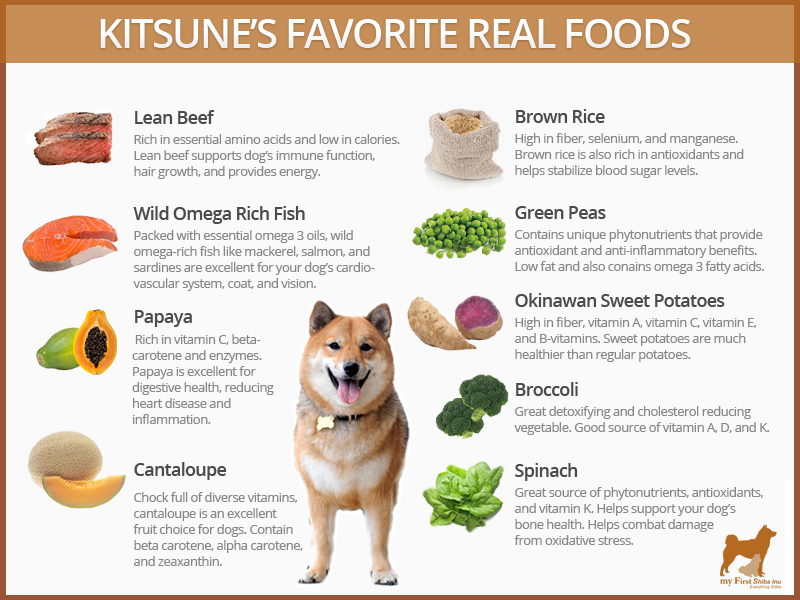
Home Prepared Dog Meals – Ready to Go!
Luckily for us, and our pooches, more and more companies our offering fresh, human grade dog meals that are properly balanced and vet approved.
One of these companies on the scene, Just Food For Dogs, has their own veterinarian team and conducts scientific studies on their foods regularly.
Many of these companies offer subscription services with delivery options.
While some like Just Food For Dogs also can be found locally in select pet food stores.
Commercial Dog Food – Wet / Dry
Commercial dog food is manufactured by a small handful of "mega" corporations that use their human byproduct ingredients to produce their "dog food".
They simply add cheaply sourced vitamins and minerals, spend millions of dollars on advertising, and voila they practically got the perfect business model.
Commercial dog food is ultra preserved food filled with preservatives, chemicals, and additives that allow shelf lives of 25 years or more for certain brands.
The high heat processing and preserving renders the food mostly "lifeless" with limited if any "alive" bioavailable antioxidants.
When choosing to feed your Shiba Inu commercial dog food, it's imperative that you understand how to decipher dog food labels and research various brands before choosing.
There are so many grades and levels of dog food quality in this category. Mostly it goes from "pretty good" to "down right horrific".
- Choose small companies that are dedicated to their craft and the animals they provide food for
- Look for a kibble that has meat as it's first ingredient, not meat byproduct
- Stay away from kibble that has mostly "filler" material such as corn, wheat, soy
- Understand the difference between poultry meal and chicken meal. P.S. the latter is the better choice
- Stay away from kibble that has artificial colorings and preservatives
- Avoid products with too much protein, as modern dogs do not have the same digestive systems as their wolf ancestors
- Stay away from Beneful or any Purina product. Period.
There are some really good dog food companies that actually care about dogs and take pride in the products they create.
It's up to you to find the best choices for your dog by researching and experimenting.
Look out for clues of dog food intolerance such as stomach issues (vomiting, diarrhea, loud digestive noises) and allergic issues (rash, hotspots, hair pulling).
Check out our dry food recommendations here.
Wet Dog Food –
If you are feeding your Shiba Inu only dry commercial kibble, it'd be beneficial to supplement the diet with either fresh human food or wet dog food.
Dry kibble can be dehydrating so adding a wet food and ensuring your dog drinks enough water is important.
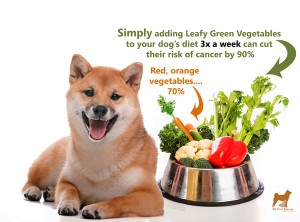
Simply Add Greens To Boost Nutrition
Adding dark leafy vegetables to your dog's kibble can reduce cancer rates by as much as 90% according to scientific study done done in Scotland on Scotland Terriers.
Adding orange vegetables such as carrots to your dog's diet can cut cancer rate by 70%.
Most dogs don't easily eat their veggies so a quick tip is to cut into very small pieces. You can even add some flavor in the beginning (bone broth is a great choice).
Raw Food (Barf Diet)
The raw food diet involves feeding your dog raw meats, bones, organs.
A raw diet can also include vegetables, eggs, fruits and vitamin supplements.
This method of dog feeding is probably one of the most debated and consists of passionate supporters as well as strong criticism from opponents.
A Quite Logical But Not Fully Substantiated Theory
One of theories for feeding raw is that it's biologically and species appropriate because dogs are descendants of wolves.
However this doesn't take in account the fact that dogs were domesticated thousands of years ago. Their dietary needs have changed and adapted as well.
Proponents also claim that bone chewing is good for cleaning teeth. However opponents say that brushing a dog's teeth is more advantageous and easy to maintain.
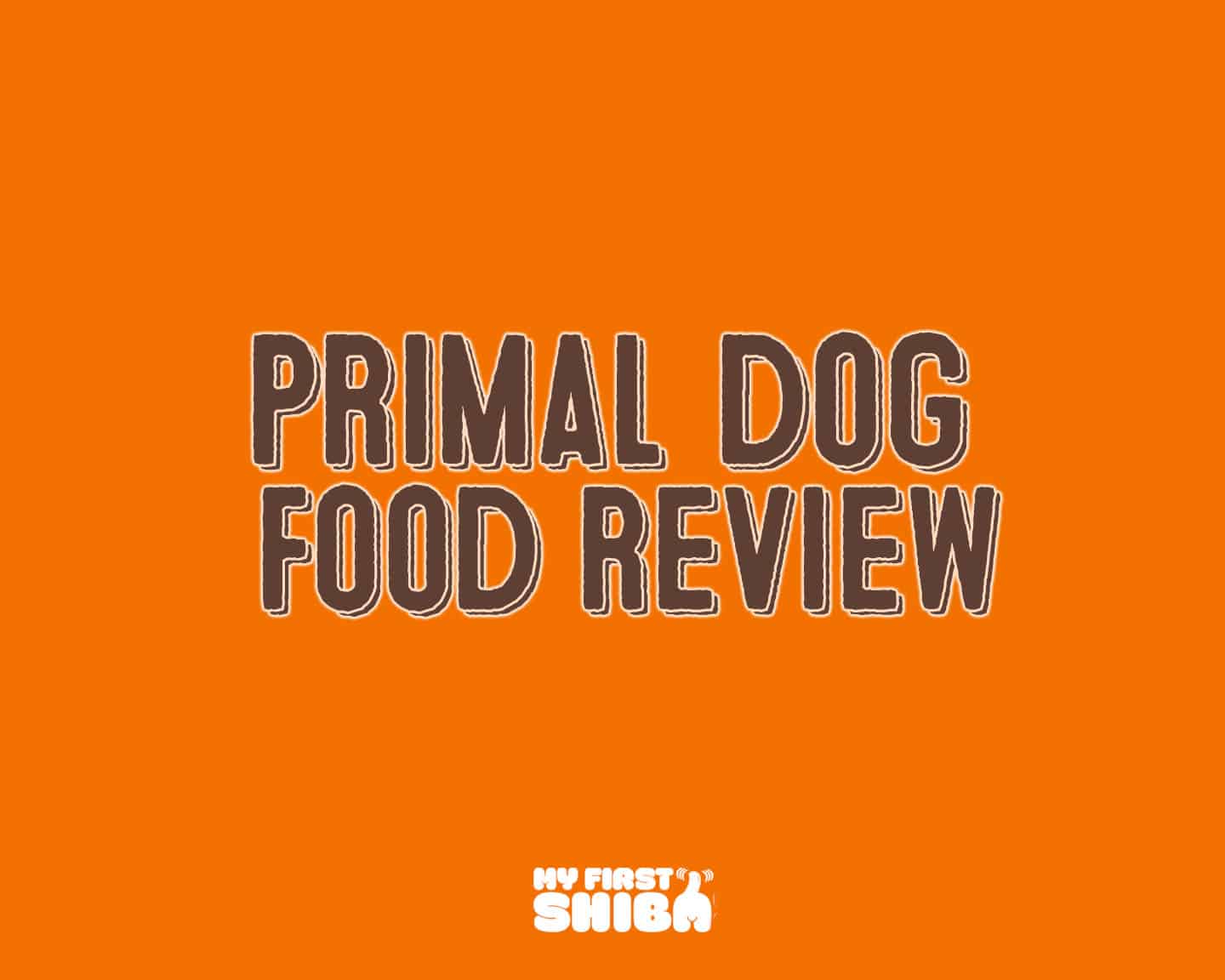
The Canine Version of "Raw Foodists"
Proponents also claim that uncooked food retains most of it's nutrients. This reminds me of the human version of the "raw" movement. Small chuckle.
What about the fact that humans brains grew exponentially larger after the development of fire?
Does this apply to our canine friends? Maybe, maybe not.
Regardless, the nutrition loss from light cooking is negligible at most.
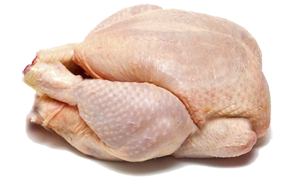 Not The Best Choice For Apartment / Condo Living
Not The Best Choice For Apartment / Condo Living
Handling raw poultry is not really fun for us humans and things can get yucky.
Yes, there's a risk for exposure to e.coli and salmonella that may not pose a threat to canines but could possibly be risky for those with compromised immune systems.
Yet if necessary, I'd choose this method over commercial dog food kibble any day of the week.
Do You Still Feel That You are Feeding Your Dog Properly?
In the end it's up to you to choose the best form of feeding for your Shiba Inu. You must balance a variety of factors including your budget, your time, and your beliefs.
You also need to consider how your Shiba Inu tolerates the food to ensure that you have a happy, healthy, and thriving Shiba Inu for many years to come.
Feed your Shiba Inu as best as you can.
Source: https://myfirstshiba.com/best-dog-food-shiba-inu/

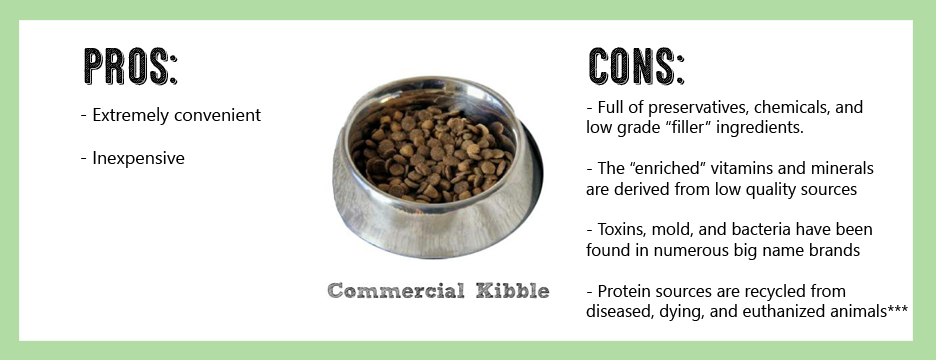
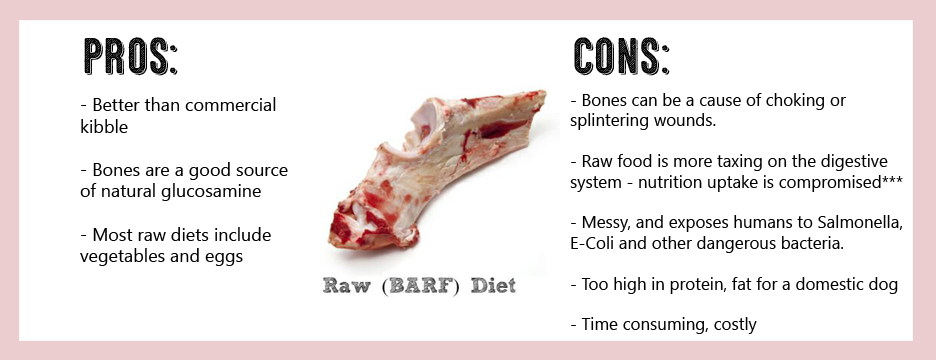
0 Response to "What to Feed a Shiba Inu"
Post a Comment